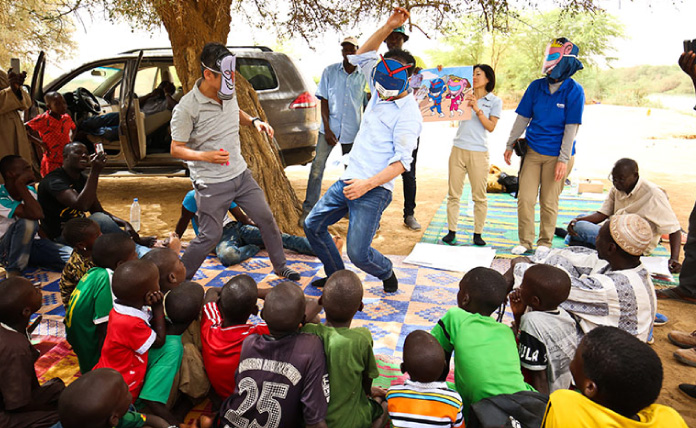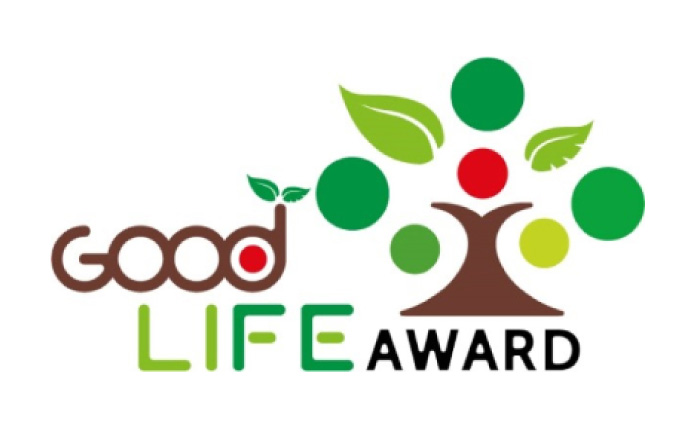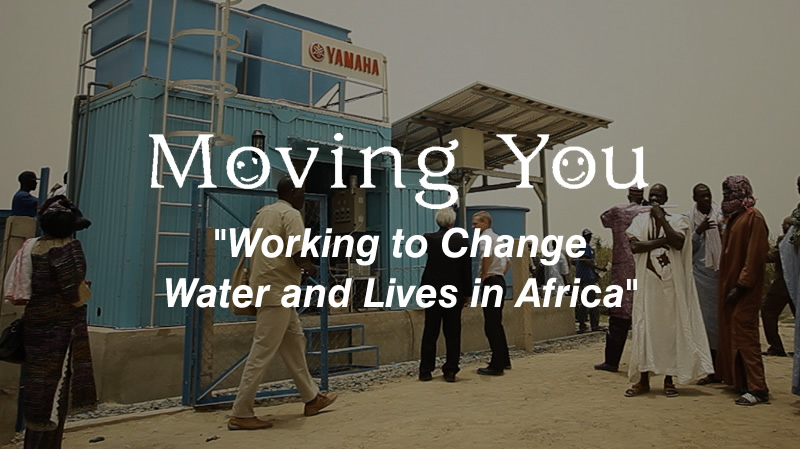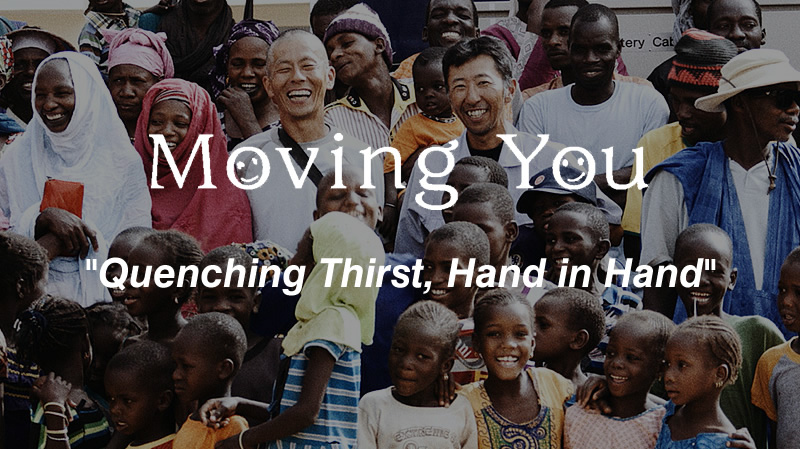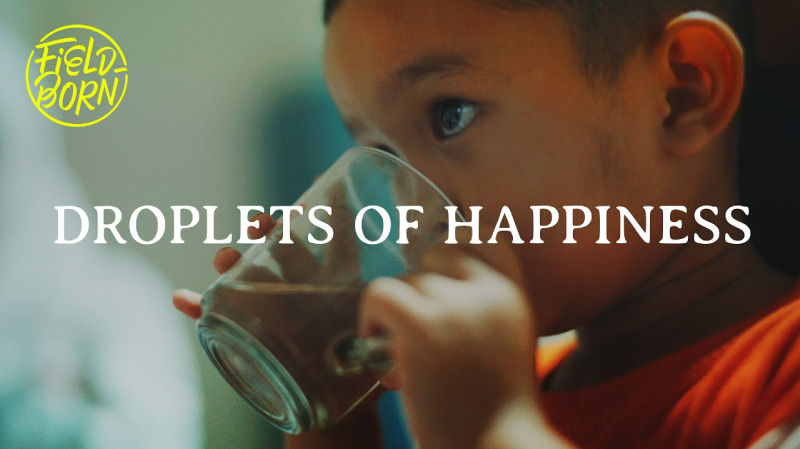Overview
Background and history
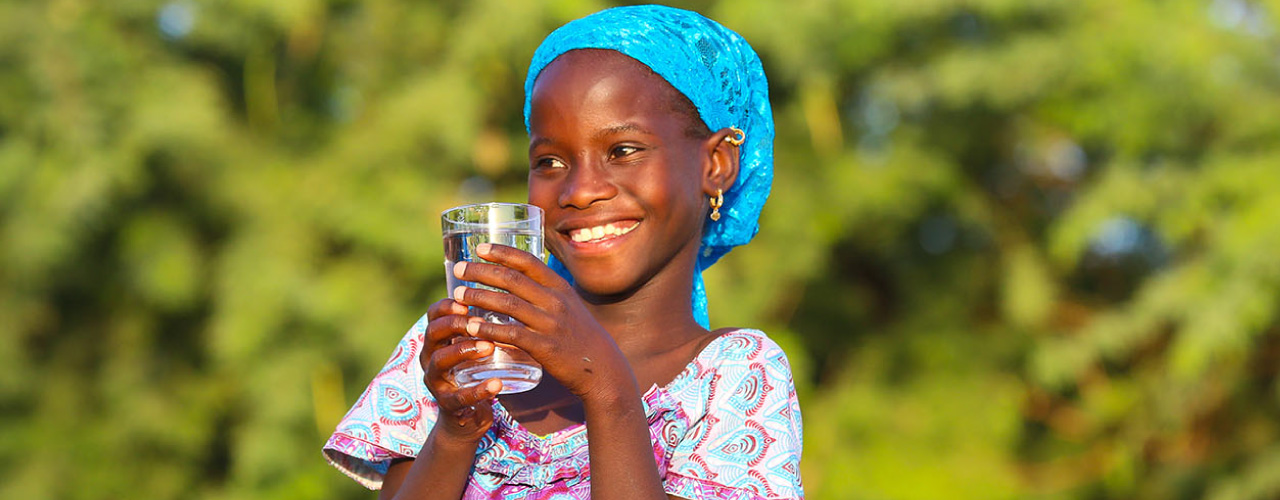
Improving health and sanitation by introducing small-scale water purification system,
Yamaha Clean Water Supply System for villages
Why Yamaha Motor does it?
Yamaha Motor's corporate objective is “offer new excitement and a more fulfilling life for people all over the world.” If we are asked why the company that makes motorcycles and outboard vehicles carries on water purification projects, the answer is, “Not only because we have the technology to purify water, but also because we have witnessed the current situation in developing countries, where our main products are used, where people cannot even live their daily lives and access to safe water is particularly difficult. We wanted to contribute to the improvement of their lives by delivering clean water.”
Utilize public funds to continue activities
In order to continue selling as businesses while solving social issues, we utilize public funds from Japan's Official Development Assistance (ODA) and UN organizations, etc., as shown in the figure. Local villages, hospitals and schools that will be the users of water purification system do not have the funds to purchase the equipment. In addition, since they themselves do not have the means to directly utilize public funds, local governments, NGOs, and other entities will become actual users of public funds as purchasers.
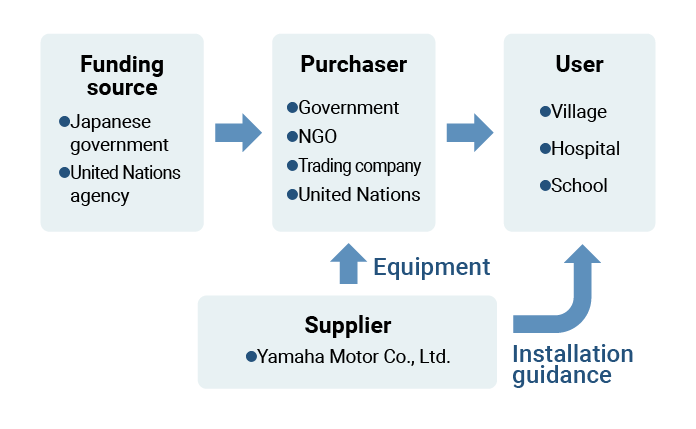
There are still many people in the world who can't drink clean water
As of 2020, 2 billion people around the world had no access to safe and managed drinking water, of which 122 million use untreated surface water, such as lakes, rivers and irrigation canals.
Source: UNICEF/WHO “Progress on household drinking water and sanitation and hygiene 2000–2020”
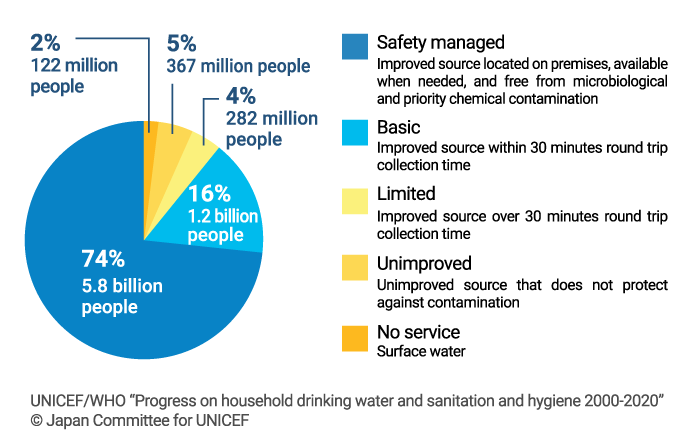
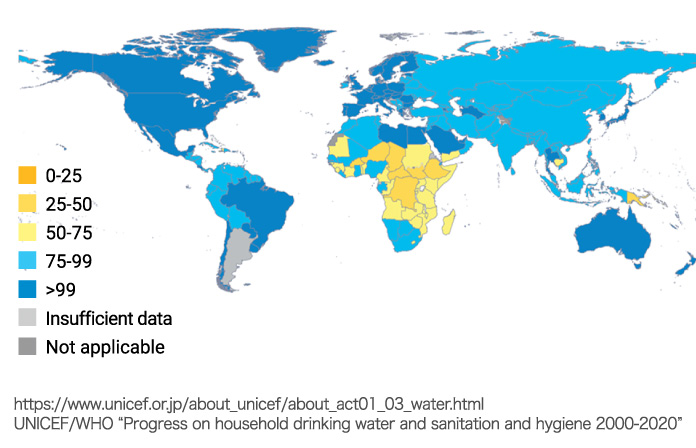
Toward achieving the Sustainable Development Goals (SDGs)
Although we have been active before the target was set in September 2015, it is also an activity to achieve SDGs. Improving access to drinking water in developing countries (Goal 6) can improve health (Goal 3). Reducing water fetching work of children and women leads to increased learning opportunities (Goal 4) and increased opportunities for women to participate in social activities (Goal 5). There are also cases (Goal 8) that create businesses such as selling and delivering water. A reduction in the consumption of firewood, which had previously been used to drink boiled water, may be lead to (Goal 15).
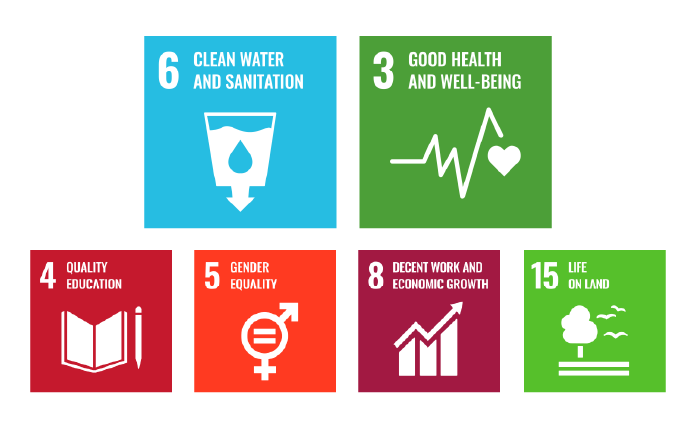
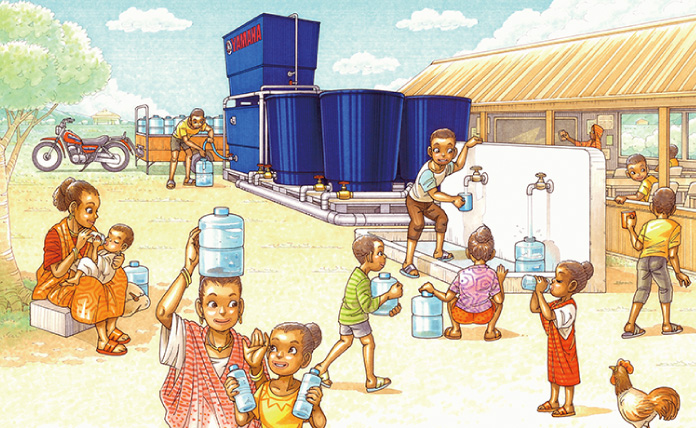
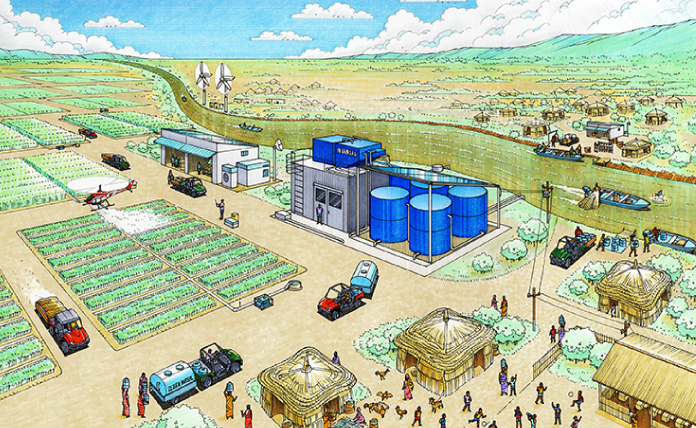
Development history
- 1974
- PT. Yamaha Indonesia Motor Manufacturing (YIMM) established
- 1980s
- From people stationed in Indonesia saying that “the water in the tap is brown, so I'm having trouble.”
Developing household water purifiers to clean wells and tap water - 1991
- Commencement of sales of water purifiers for household use
- 2000
- Based on the idea of "Can't anything be done for people in areas without water supply?"
Began development of water purification system using river water, etc.
Pilot plants in eight locations in six Asian countries -> Conducted demonstration tests - 2010
- Start sales of small-scale water purification system for villages only in Indonesia
- 2012
- Expanding globally
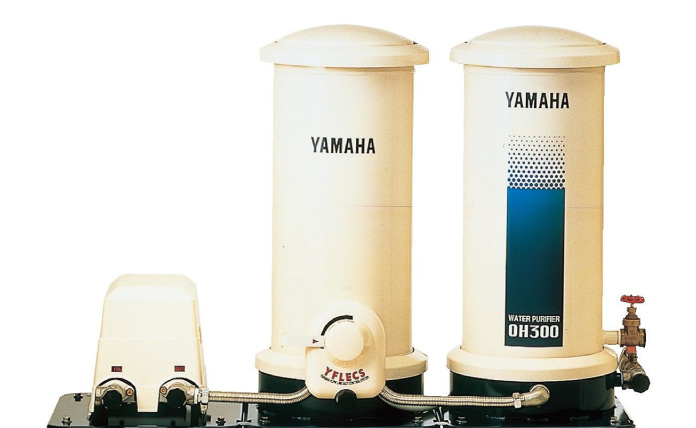
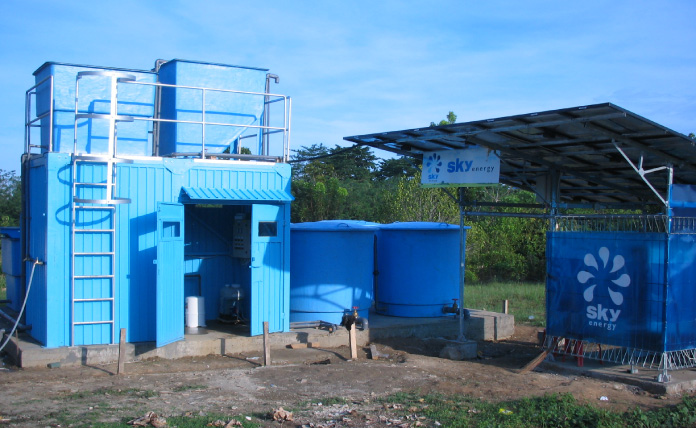
Installation results
63 units (as of December 2025)
Asia and Africa
We have been promoting the introduction of this small-scale water purification device using ODA from the Japanese government and public funds from UN organizations. As shown in the figure below, 63 units have been installed in Africa and Asia as of December 2025. However, three of the eight pilot plants installed in the past for demonstration tests have been disposed of and are not included here.
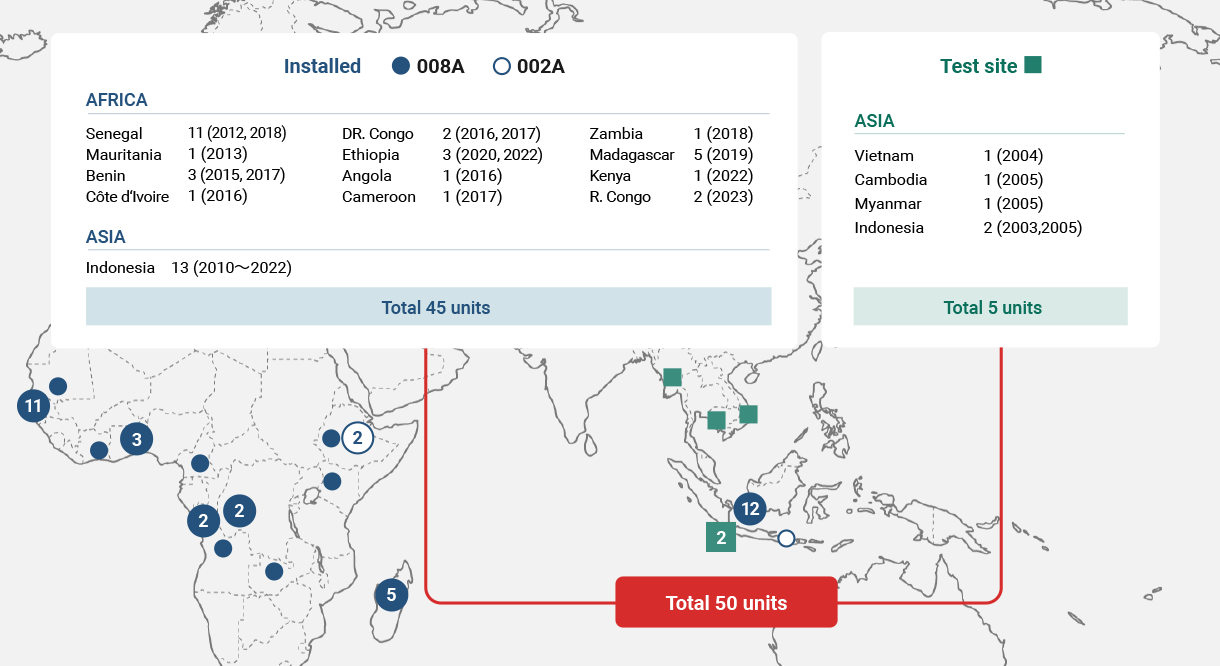
Beneficial effect
In countries with scarce water resources, fetching water is a hard labor. Moreover, because it has been regarded as a woman's or child's job, they are deprived of a lot of time. In villages where the Yamaha Clean Water Supply System has been introduced, the time spent on fetching water can be allocated to production and learning activities, and it is also an opportunity to create new business opportunities such as water delivery and cleaning and ice making. Clean water not only provides direct benefits, such as improved sanitation concepts and epidemic prevention, but also leads to the revitalization of villages.
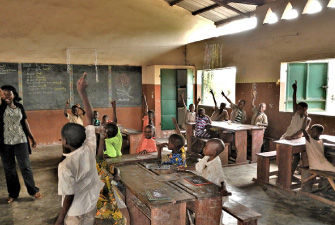
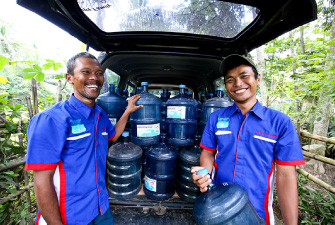
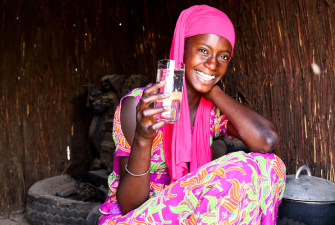
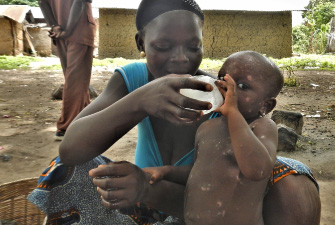
In 2018, we visited a village in the suburbs of Saint Louis, where a Yamaha Clean Water Supply System was established in Senegal in 2011 and conducted a survey on the actual state of life using a picture-card show. The survey found that out of the 35 residents who gathered at the meeting, 100% said that “diarrhea has decreased” after the introduction of “YCW”, 94% said that “stomachache has decreased”, and 23% said that “skin disease has decreased”. We also received comments such as “The water is delicious,” “I'm happy that the tableware looks beautiful,” and “The dullness has disappeared, and my body feels lighter.”
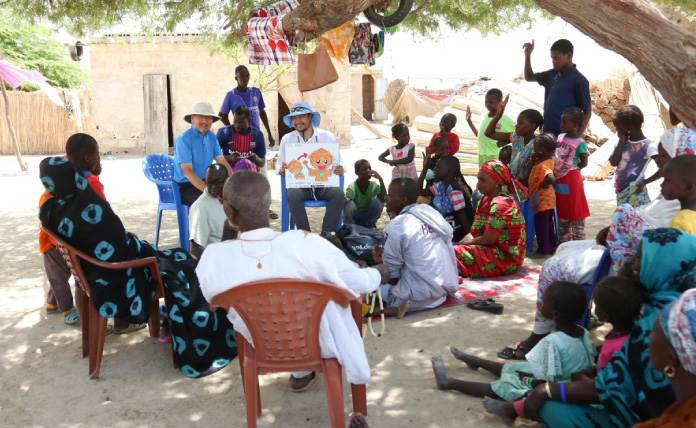
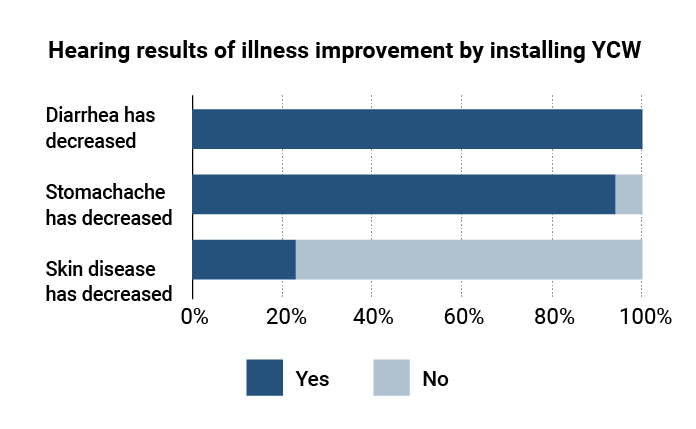
Educational activities
“Raising awareness of the importance of safe water in villages through picture-card shows”
After the establishment of the YCW, educational activities have been conducted to deepen the understanding of the importance of safe water among children in villages who have long used water pumped from rivers as domestic water. Specifically, we have chosen a method of supplementing “Kamishibai” or “Picture-story show” with “Sungeki” or “Short play” as a package of educational activities suited to the local environment, such as “Do not use electricity” and “Do not rely on language.” In June 2019, the “Project to Enlighten Children's Awareness of Safe Water Utilization through Paper Theatre” was awarded the “Eco-Future Award for Children and Parents and Children” by the Executive Committee of the “8th Good Life Award” sponsored by the Ministry of the Environment. The project was conducted for children in plazas and schools in Dagana Village, Bakhao Village, and Wouro Kelle Village, Senegal.
The Good Life Award, sponsored by the Ministry of the Environment, aims to realize an environmentally friendly society. This award seeks to solicit activities and initiatives related to “living in harmony with the environment and society,” which are practiced in various parts of Japan, and introduces and commends initiatives (such as volunteer activities, services and technologies) that embody a SDGs that improves society. It also supports information exchanges and other activities to revitalize activities and society.
